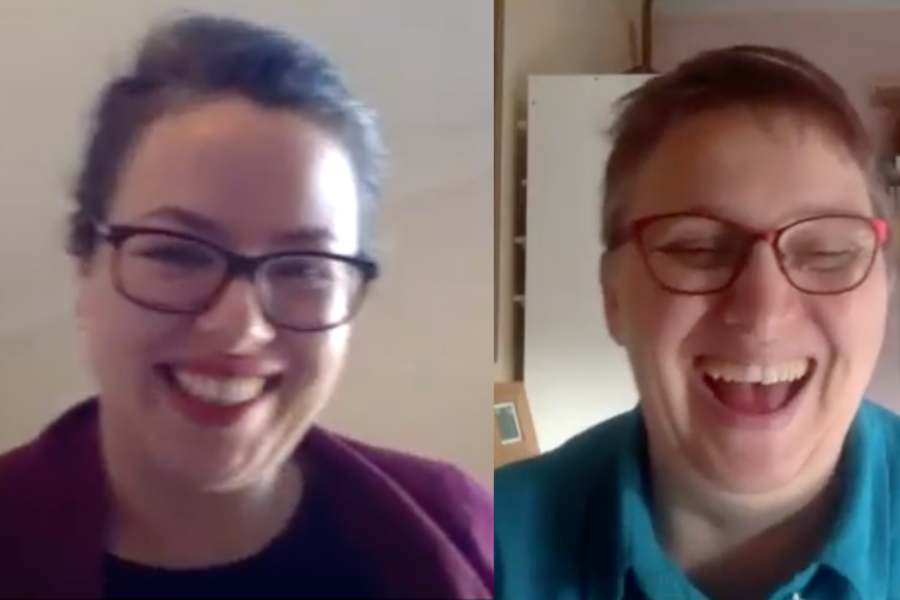Jo VanEvery, Academic Career Guide · Reflections on 20 years of self-employment In April 2005, I found myself unemployed. April 2025 marks 20 years of self-employment. My approach (and my advice) is often to take stock of the context, look at the opportunities available, and pick something to try. As I said in a post […]
Read More »Finding Your Way: Academic life as a journey
One of the great attractions of an academic career is the level of autonomy and freedom that you have. Some possible paths are clearly marked. Others are less obvious. Roadblocks are a frequent problem. Regardless of your stage of career, posts in this section help you identify the signposts and make decisions.
Creating A Satisfying Academic Career – Part 2
Jo VanEvery, Academic Career Guide · Creating A Satisfying Academic Career This post is Part 2 of a series on Creating a Satisfying Academic Career. In Part 1, I introduced the idea of “creating” a career based on the opportunities available and provided some reflection prompts to help you figure out what is important to […]
Read More »Creating A Satisfying Academic Career – Part 1
Jo VanEvery, Academic Career Guide · Creating A Satisfying Academic Career It is not an exaggeration to describe the current context in higher education as dystopian. Whether you are already employed in academia, permanently or precariously, or whether you are seeking academic employment, the situation is distressing. Is it possible to have a satisfying […]
Read More »Do you hate writing your author bio?
Aimée Morrison, writing at Hook & Eye, raises an interesting point about writing academic bios: One thing that’s increasingly becoming clear to me is that the bios that accompany Serious Scholarly Writing, like a peer-reviewed article, don’t mention teaching. Better more words devoted to where you’ve published and who funded your work, than to describe […]
Read More »On research and emotional entanglement
A Note from Jo: This post has been repubished from Liz Gloyn’s own blog site, because it is relevant to the struggles I know my clients and Studio members unfortunately go through on a regular basis. Term has finished, the Christmas tree is up, and I’ve got a week before annual leave kicks in… so […]
Read More »Autism & Imposter Syndrome
A note from Jo: On 28 October 2023 Daniel Sohege posted a thread on Bluesky and Twitter about what they call “Autistic Imposter Syndrome”. I recognized much of what they described from conversations with an autistic friend. They kindly agreed to have me turn it into a guest post here. I’ve kept their name for […]
Read More »Why are you writing this book?
Jo VanEvery, Academic Career Guide · Why are you writing this book? A book is a big project. Depending where you mark the beginning, book writing can take years. Not only is it hard to protect the time, given all your other commitments, but it can be hard to sustain momentum. Some of that is […]
Read More »Radical alternative ways to approach productivity in the PhD
Jo VanEvery, Academic Career Guide · Radical alternative ways to approach productivity in the PhD This month’s article is by a guest author, Jamie Pei. There are a couple of reasons for this. One is that I try to follow my own advice and take a proper vacation. I’m on annual leave for the first […]
Read More »Making Decisions: Applying for Funding
Jo VanEvery, Academic Career Guide · Making Decisions: Applying for research funding Funding can often feel like an externally imposed mandate that has more to do with institutional underfunding than your own research needs. Conversely, if you do lab based research, securing funding may be fundamental to your ability to pursue an academic career at […]
Read More »You don’t have to find a “gap” in the literature
Jo VanEvery, Academic Career Guide · You don’t need to find a “gap” in the literature Your research, and the publications based on that research, need to make an original contribution to knowledge. Over the past 20 years, I’ve seen a lot of ways academics, at every career stage, get in a bit of a […]
Read More »Academic Writing & Publishing: A Discussion with Katherine Firth
Jo VanEvery, Academic Career Guide · Academic Writing: An Interview with Katherine Firth This post is an edited transcript of my interview with Katherine Firth in October 2019 to celebrate the publication of my Short Guide on Peer Review. JoVE: Hello. So I am Jo Van Every, and this is Katherine Firth. [Katherine confirms]. […]
Read More »Making Decisions about your writing
Jo VanEvery, Academic Career Guide · Making decisions about writing This is a belated addition to the Making Decisions series that begins with Managing the energy you use to make decisions, published in August 2021. You might want to read the introductory post first. You can also find links to other posts in the series […]
Read More »

















